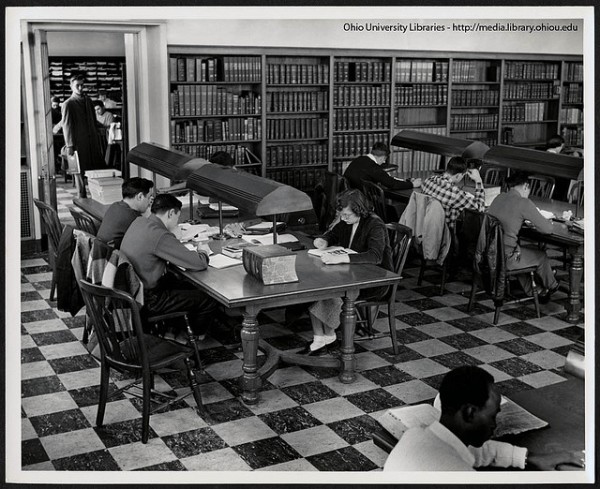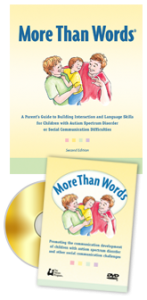 More Than Words is a wonderful name for Hanen’s program for parents of children with autism or social communication difficulties; they’re right, it is about so much more than words. I find it tricky to answer the question: what is speech therapy? It’s so broad, and the name is a little misleading — during More Than Words I worked intensively with parents without ever targeting speech. Continue reading
More Than Words is a wonderful name for Hanen’s program for parents of children with autism or social communication difficulties; they’re right, it is about so much more than words. I find it tricky to answer the question: what is speech therapy? It’s so broad, and the name is a little misleading — during More Than Words I worked intensively with parents without ever targeting speech. Continue reading
Check out a new resource for running language groups
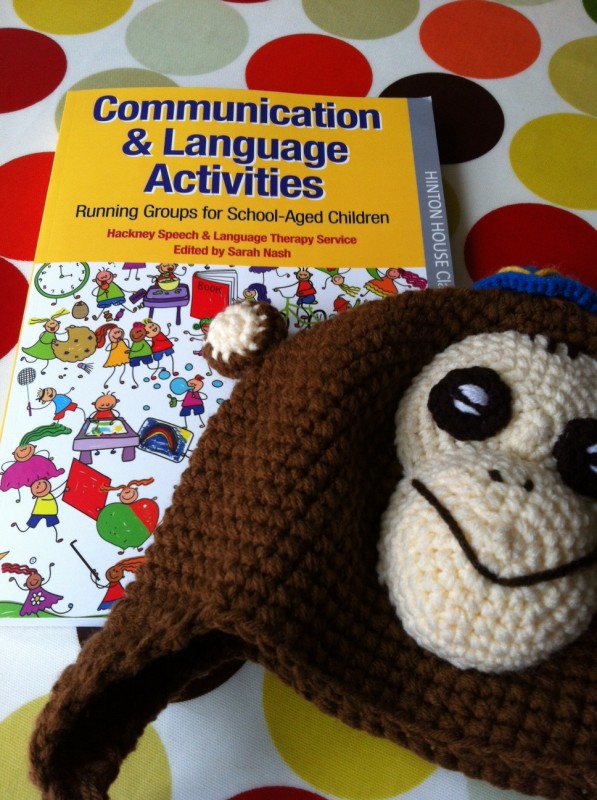
The book, with the hat used in the game!
I recently got my hands on Communication & Language Activities – Running Groups for School-Aged Children, edited by Sarah Nash. Disclosure: I was given a copy of this book by the publisher to review, I used to work in the Hackney Team and Sarah is a friend. That said, here’s what I think.
I loved the illustration on the cover, and was keen to see how the book had been structured. There’s a comprehensive and clearly written introduction, covering topics like planning the sessions, dealing with difficulties and supporting carry over to the classroom.
To connect with our clients we must model vulnerability

I believe that wonderful things happen when we step outside our comfort zone and do things that scare us, when we’re brave and allow ourselves to be vulnerable.
There was recently a discussion on twitter about SLTs presenting a calm exterior even when we’re panicking or out of control on the inside. We all know this feeling! It got me thinking, we need to present ourselves in a way that inspires confidence in the people we work with. We also need to bring our vulnerability to work – and not worry about people seeing our uncertainty. It’s hard and something I continue to struggle with.
Having a go when it might go wrong: what I learned from communicating on holiday

I’m on holiday in Tunisia! Travelling is a wonderful adventure, the food, architecture and landscape are exotic and exciting. Communication can be a challenge; although I’m a Speech and Language Therapist I’m not a natural linguist. My high school French is rusty and my Arabic skills stretch to hello & thank you, here in Tunisia I’m trying a total communication approach!
Diving in: supervising new speech therapy graduates

I’m supervising two new graduate Speech and Language Therapists. They’re thoughtful and skilled clinicians who’ve taught me a lot. It’s a difficult time to be starting out in the NHS — just scheduling supervision sessions is a challenge.
When I started working as an SLT I remember feeling like I’d been thrown in the deep end while still getting support from my new colleagues. I’m trying to give my new graduates a similar experience. Learning can be uncomfortable, and that’s okay, but I don’t want them to drown.
Check Out 10 New Lightning Talk Videos and a Call for Speakers
Happy New Year Everyone! How about some Therapy Ideas Live motivation to get 2013 started? All 10 lightning talks from our September 2012 event at UCL, are now on the website.
These 5 minute videos are bite-sized CPD opportunities about a huge range of topics from the Nuffield Dyspraxia Program to using gestures in therapy. There are talks on Lego Therapy, the importance of marketing in SLT and a story book project with adults with brain injuries. Have a look.
Putting Yourself First
We present a guest post by Cathy Sparkes and Sam Simpson, SLTs who work together as intandem. Here are Cathy and Sam’s reflections on supervision.
Ask yourself this question: Am I looking after myself enough in these challenging times? If your answer is ‘no’ or ‘not sure’ then read on!
The service you work in is probably being exposed to job cuts, a reduction in CPD funding and the demand to maintain clinical standards with ever-shrinking resources. In the midst of this you still need to put yourself first by making sure you’re receiving the quantity and quality of supervision you need. Over the past decade we have been supporting SLTs to access and provide good quality supervision. However, we often find that people don’t know what supervision is, have never experienced it or think they haven’t got time for it.
Therapy Ideas Live Won the Shine a Light Innovation Award!
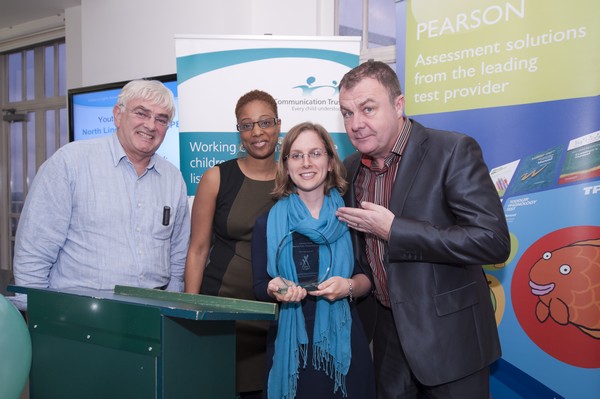
Exciting news here at Therapy Ideas HQ: on Wednesday Therapy Ideas Live won the Shine a Light Innovation Award at a champagne reception in central London. TV star Paul Ross presented me with the award (check out the photo.) Woohoo!
The awards were first given out last year by the Communication Trust, in association with Pearson Assessment, as part of the Year of Communication. They were developed to celebrate excellent practice in supporting children and young people’s communication development. The Innovation Award is a new addition to the categories this year: the judges were after creative projects that achieved great results.
Fiona Douglas: Therapy Ideas Podcast, episode 6
Listen to the 6th episode of the Therapy Ideas Podcast, a series of conversations with therapists from around the world. In this episode I talk to Fiona Douglas in Perth, Australia about working with children with severe speech disorders, prioritisation and the best and worst bits of the Australian and British systems.
Let me know what you think!
Listen now
Download the MP3 file or subscribe in iTunes.
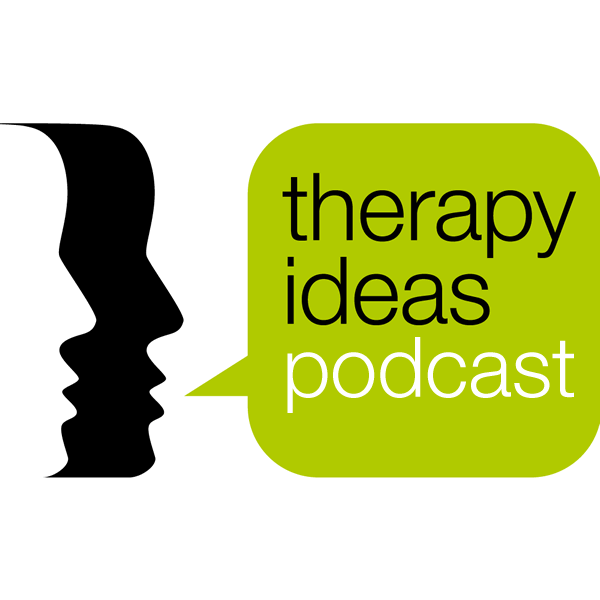
Using Evidence-Based Practice in Real-Life
I’ve been thinking about how evidence-based practice is relevant to daily life as a therapist. I enjoyed reading Arlene McCurtin and Hazel Roddam’s Review, Evidence-based practice: SLTs under siege or opportunity for growth? The use and nature of research evidence in the profession, in the International Journal of Language and Communication Disorders. Check it out!
Many clinicians and managers I’ve spoken to think that evidence-based practice (EBP) consists solely of evidence from systematic research. Which means the mantra – base service decisions on EBP, can seem punitive rather than supportive. Watch Kate Malcomess describe how clinicians can feel dismissed and devalued if they don’t have an evidence base, in her 5 minute lightning talk. McCurin and Roddam use a definition by Dollaghan (2007) that highlights there are three components of EBP: research evidence, the expertise of the clinician (internal to clinical practice), and patient values and preferences.

